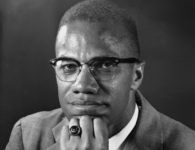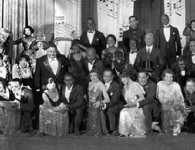Tonika Morgan has not had an easy life. Now 32, the Toronto woman says she left home at 14, was homeless for four years, and slept in shelters and on park benches. She was kicked out of high school, she says, because she hardly ever showed up.
Even though she’s overcome problems that would overwhelm almost anyone, it wasn’t until this year that she faced what she calls her “biggest fear of all”: the fear that her application to attendHarvard’s Graduate School of Education next fall would be rejected.
It wasn’t. She’s in. But with her acceptance letter came another big worry: that she couldn’t pay the approximately $77,000 needed for the one-year master’s program, where tuition alone is $43,280.
So, lacking resources or workable options, she joined a growing number of needy college students and turned to crowdfunding to raise the money. She launched a “Mission for Harvard Tuition” in April on the GoFundMe site. According to aol.com, after local media publicized the page, Morgan exceeded her goal and nearly $93,000 dollars was fundraised.
But Tonika Morgan knows that being able to go to her Harvard is not without the help of others who are helping her fulfill a dream of a lifetime. “I have to say that this has been quite emotional for me. I have shared hugs, tears of joy and laughter with the beautiful souls who have noticed me on the street. I’ve never felt more supported and connected to anyone the way I have felt since this campaign started.”
“I was on the trolley and this woman reached her hand out and started crying,” Morgan, who goes by “Toni,” said in a phone interview from Toronto. “She said, ‘I’m so proud of you!’ I didn’t know that by telling my own truth, I’d connect with so many people.”
Going public wasn’t appealing to her, but there was no choice, Morgan said. International students aren’t eligible for federal financial aid, according to Michael Rodman, assistant dean for communications and marketing at the graduate school.
Rodman declined to directly answer why Harvard would not pay Morgan’s way, instead issuing a statement explaining that its goal is to “ensure that financial need is not an impediment’’ to attending and that is why “financial aid is one of our top priorities in the current fund-raising campaign.”
Morgan’s path to teaching was not a straight shot. She describes her early years as “really unstable.” She was born to 17-year-old parents, she said, and grew up “with a whole lot of stress that comes along with not being much younger than your parents.”
Two more children followed as her father “popped back in and out of the picture” and her mother worked a night shift. “She functioned in a completely other world,” said Morgan. “It made more sense for me to leave.”
Morgan floated around Toronto, sleeping on couches, outdoors, and in a series of shelters where she mingled with some whom “the world would think are bad people,” she said, among them women in the sex trade who tried to recruit her. They quickly figured out she wasn’t sex trade material, Morgan said.
“I talk back to people, I don’t respect authority. I believe in women’s economic empowerment. I would want to know what the contract was, and how much money I was getting. Not that I was actually entertaining it.”
Since she wasn’t old enough to work legally, she took whatever jobs she could — mostly telemarketing and babysitting — which left little time for school. But she did spend a lot of time in a library where there were computers, and she taught herself how to do web design, generating a handful of clients.
“If you have no other options, you have to figure out how to survive,” Morgan said.
None of her teachers asked her why she rarely came to school. Eventually, she had a showdown with the vice principal, which turned out to be a pivotal moment. “She pointed to her degree on the wall and said, ‘You are never going to get one of these things,’ ” Morgan recalled. “She kicked me out.”
Morgan was determined to prove her wrong, and a first step was realizing that surviving homelessness was something she was proud of. “I accepted and embraced my ‘outsider’ status,” she wrote in her Harvard application’s “Statement of Purpose”: “As a newly minted outsider living in a shelter, I no longer felt ashamed by my circumstance, but inspired by new ambitions.”
One ambition was to become an entrepreneur, and she methodically went about accomplishing it. She polished her shaky writing skills at a youth employment center. She volunteered at community organizations including the Toronto Youth Cabinet, she said, where she was a youth homelessness advocate, sharing her personal experiences. She learned to navigate City Hall.
She started a hip-hop feminism collective, an urban arts organization for young women of color. “I realized I was good at work,” Morgan said. “I was smarter than the school made me believe.”
Her first full-time job was organizing a youth council for young leaders in a crime-ridden neighborhood; when she was 20, she coordinated an ambitious 500-person youth forum, and became a mentor to kids.
After two years, she felt confident enough to apply for a job at a program called Women Moving Forward, overseeing a new $1.2 million initiative to transition women from poverty to employment, through education. Her application went to Wanda MacNevin, director of community programs at the Jane/Finch Community and Family Centre, whichlaunched the program. MacNevin was dubious.
“Why would anyone hire someone with no management experience?” MacNevin wondered. Then she checked the list of references, which she was surprised to see included her own husband, who — unbenownst to Morgan — was Morgan’s supervisor at the youth council. “He told me, ‘You’re crazy if you don’t give her an interview,’ ” said MacNevin — who did, and hired her.
Morgan excelled at the job, according to MacNevin, encouraging women go to university and get off social assistance. She described Morgan as a “visionary.” Meanwhile, Morgan was slowly putting herself through college after finishing high school at night. It took her 10 years to graduate with a bachelor of arts degree from Ryerson University in Toronto.
She also taught a course in community development at Centennial College, a community college in Toronto. Now she works at the Beat Academy, which does arts education for people interested in technology and music, and is a public speaker for the United Way.
Over the last few months she’s spent lot of time worrying about the money she needs to get to Harvard, which she selected not just because of its reputation, but because it offers study in alternative education, something she can relate to.
Not that she doesn’t want to be in a classroom, Morgan said. “It depends on how you define classroom.”
article by Linda Matchan via bostonglobe.com





















2 Comments
You actually make it seem so easy with your presentation but I find this matter to be really something that I think I would never understand. It seems too complicated and extremely broad for me. I am looking forward for your next post, I will try to get the hang of it!
These are really great ideas in about blogging.
You have touched some good things here. Any way keep up wrinting.